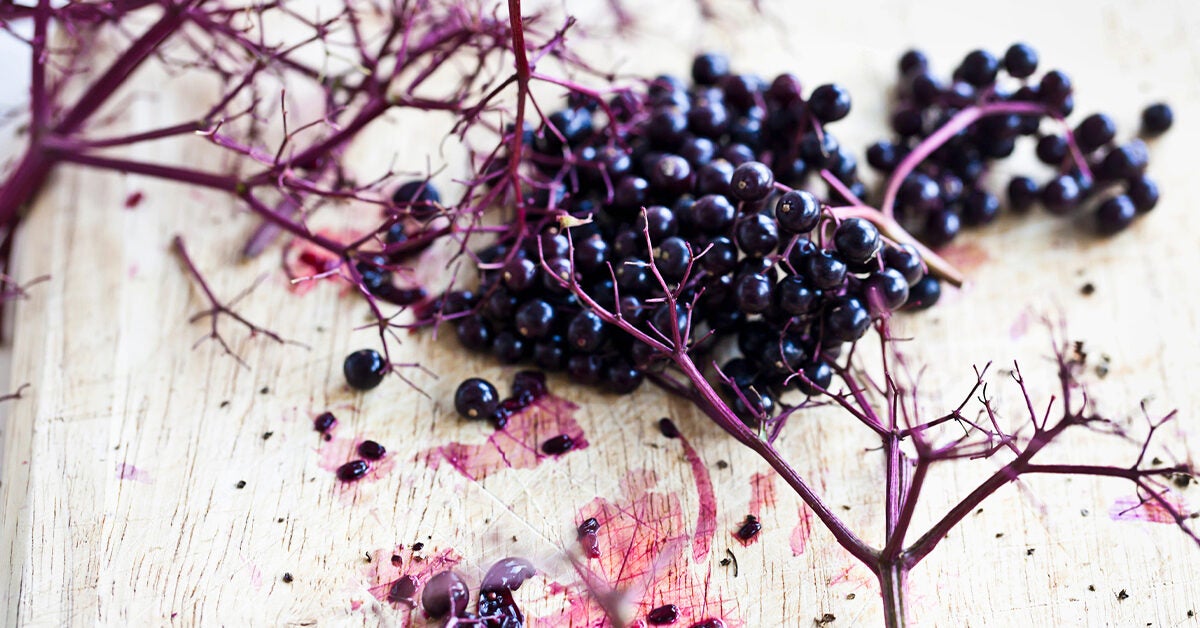Elderberry and COVID-19: What You Need to Know - Healthline

As the COVID-19 pandemic continues, people are turning to supplements to help boost their immune systems.
Even before the pandemic, some people used elderberry supplements to help boost their immune systems, particularly during cold and flu season.
However, there's currently no scientific research to support the use of elderberry supplements treating or preventing COVID-19.
If you're interested in taking elderberry as an overall health supplement, read more about its potential benefits and possible risks. Discuss these with your doctor before taking elderberry — or any other supplement.
Elderberry is a dark purple fruit that's indigenous to Europe, Asia, northern Africa, and North America.
While supplements are derived from the black elder (Sambucus nigra) tree, the actual elderberries — and other parts of the plant — aren't eaten raw because they can cause nausea, vomiting, diarrhea, and dehydration.
Instead, you can find elderberry supplements in different forms, such as chewable gummies, capsules, and syrups.
Elderberry supplements have long been promoted in complementary and alternative medicine as methods to help boost your immune system. They're also sometimes used to help treat upper respiratory infections related to the flu or common cold.
While it's possible that elderberry supplements may help boost your immune system and help with cold and flu symptoms, there's currently no evidence that elderberry may help with COVID-19.
Part of the issue is that SARS-CoV-2, the virus that causes COVID-19, is so new that research regarding supplements such as elderberry is lacking.
Due to the lack of scientific evidence, both the
Such stances don't apply to just elderberry. To date,
Several clinical studies and reviews have confirmed the possible antiviral benefits of elderberry. With that being said, no studies to date have determined whether elderberry is beneficial in treating COVID-19 symptoms.
One 2019 study found that while elderberry could be helpful in the early stages of the flu, the effects were modest.
A
Both these studies were in vitro, so they did not involve actual people, though.
A larger-scale 2019 analysis of randomized controlled trials found that elderberry supplementation significantly reduced symptoms of upper respiratory infection.
Such effects led these researchers to conclude that for some people, elderberry may be safer to treat flu and cold symptoms over prescription drugs.
A
A
Despite a lack of evidence regarding elderberry and COVID-19, some people may still opt to take these supplements just in case they might have positive effects on the immune system.
Still, there are some risks associated with elderberry.
Avoid raw elderberries
If a doctor gives you the go-ahead to take elderberry, make sure you stick with supplements only. Raw, fresh elderberries as well as other portions of the plant, such as the leaves, contain a potentially toxic substance called sambunigrin.
Consuming raw elderberries and other parts of the elder tree can lead to the
May increase cytokine production
One potential concern about consuming elderberry is that it may increase proteins in the body called cytokines.
While normally helpful in controlling cellular responses to inflammation, too many of these small proteins could lead to adverse reactions known as cytokine storms.
However, the research behind increased cytokine production is mixed. First, one 2019 study found that elderberry was effective in treating the early stages of the flu, partly because of a slight increase in cytokines.
A
More research is needed to confirm whether elderberry can increase cytokine levels associated with viral infections. This is especially important concerning COVID-19, which is known for increasing the risk for cytokine storms.
Who should not take elderberry?
Due to its
Elderberry also isn't recommended for pregnant or breastfeeding people. It's not known whether these supplements are safe for babies or fetuses.
Elderberry supplements might help boost your immune system and offer some level of protection against common flu and cold viruses.
However, there's currently no scientific data to support the use of elderberry for preventing or treating COVID-19. Furthermore, elderberry supplements may pose more harm than good in some people.
If you do decide to take elderberry supplements, do so with care and under a doctor's guidance only.
You should not take elderberry supplements in lieu of recommended vaccinations. It's also important not to self-treat COVID-19 with any supplements.
Comments
Post a Comment